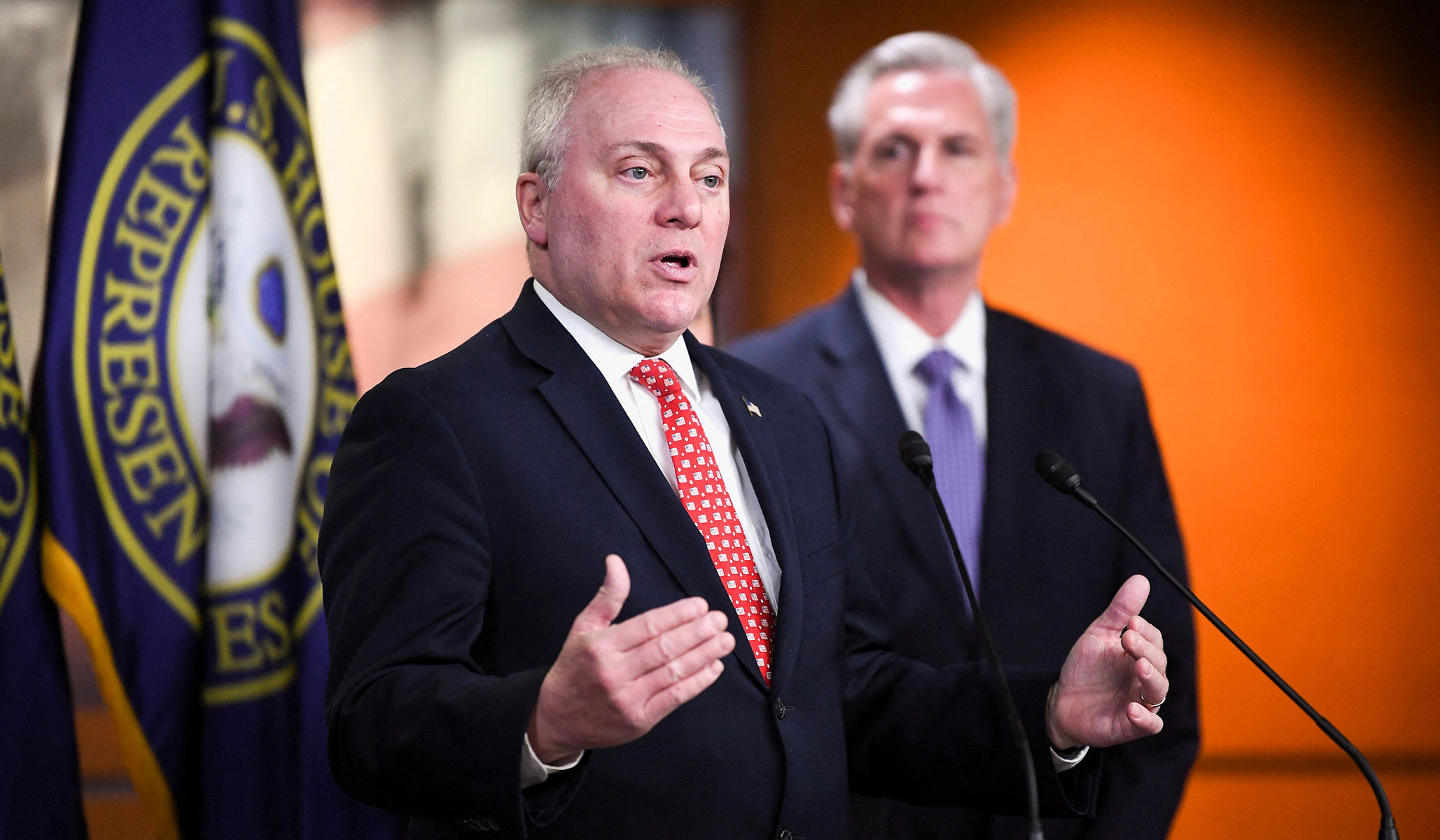


Eleven Republican House members voted against a bill they support because they’re disappointed in the debt-ceiling deal. A procedural vote to advance legislation prohibiting gas-stove bans failed on Tuesday by a vote of 206 to 220 when those eleven Republicans joined most Democrats to stop it. What exactly they proved by doing so is not clear.
We’re not thrilled with the debt-ceiling deal either, and it’s fair to say that Republican leaders oversold it. It fails to address the long-term driver of the national debt, mandatory spending on entitlements. It doesn’t include most of the solid provisions from the initial bill that the united GOP conference passed in April. On balance, Speaker Kevin McCarthy played his weak hand well, getting President Biden to abandon his no-negotiations stance and getting a deal done ahead of schedule to avoid a possible default, but we don’t begrudge any GOP member of Congress who voted against the deal.
And many GOP members of Congress did, in fact, vote against the deal. In the House, 71 Republicans voted against it, and in the Senate, 31 did so. Leadership did not expect the conference to unite behind the deal, which was as much the Democrats’ problem as the Republicans’ problem. Democrats control the White House and the Senate, and they needed to supply votes for the deal their party’s leader negotiated.
If House leadership had whipped the GOP conference hard about voting for the deal, the dissenters on the gas-stove measure would have more of a point. Representative Andrew Clyde (R., Ga.) claims that leadership threatened a separate gun bill he supported because of Clyde’s opposition to the debt-ceiling bill, a claim that House majority leader Steve Scalise (R., La.) denies. Scalise said that leadership’s hesitation was due to insufficient support within the conference, and that they were still in the process of getting everyone on board. Regardless, GOP House members were allowed to vote their conscience on the debt-ceiling deal, with a third of them dissenting from leadership.
To follow that up by voting against their conscience on the gas-stove measure makes little sense. Republicans control the House of Representatives, only barely. Democrats control the Senate, only barely. And Joe Biden is in the White House. In that environment, where most conservative priorities have little chance of being signed into law, the House should consider its primary job to be inhibiting Joe Biden’s agenda.
Joe Biden’s entire agenda on the debt ceiling was to raise it. House Republicans were able to get him to agree to a handful of concessions in exchange for raising it. That was a win for House Republicans, and it occurred because they united and passed the initial (superior) debt-ceiling bill in April.
To expect a complete overhaul of Washington’s reckless spending habits in this debt-ceiling fight was not realistic. The time to do that will be in 2025, when there might be a Republican in the White House to sign it into law. That’s the time when Republican resolve on spending would be most needed — as we saw last time Republicans had the White House and Congress, when that resolve was nowhere to be found.
Gas-stove bans are a fringe progressive idea, and contrary to the media narrative, they are real proposals that progressive activists are pushing for around the country. Republicans should put their foot down and block any efforts to prohibit gas stoves, and a handful of moderate Democrats might vote with them. Joe Manchin (D., W.Va.), Jon Tester (D., Mont.), and Kyrsten Sinema (I., Ariz.) just voted with Senate Republicans on a measure to block the Biden administration’s unconstitutional student-loan program.
Scalise changed his vote to “no” on the gas-stove legislation because doing so means the bill can be brought back to the floor. Leadership and backbenchers can point fingers at one another all day — or they can pass legislation they agree on that the vast majority of the American people support.
